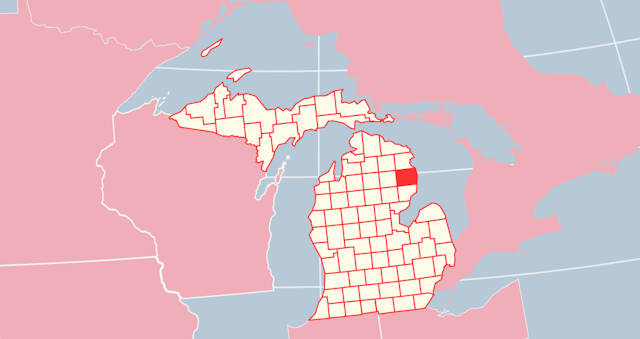Rehabs in Alcona
Alcona is situated on the "Sunrise Side" of the northeastern lower peninsula. Farming, tourism, recreation, and timber production are the main businesses run there. According to the 2020 census, the population is 10,364. Harrisville serves as the seat.
Being a welcoming place does not mean there are no issues. Health problems, for instance, still exist. According to the Primary Care Needs Assessment, the rate of drug-induced deaths is 29.3%. To imagine, the national average is 21.8%.
As for the opioid mortality rate in Michigan, it is 21.1%. Alcona is 57th out of 83 counties in terms of health status in the state.
This means that there is an issue that needs attention. Alcona County rehabs are working towards this by providing a wide range of services.
Evaluation
A person must first pass a drug abuse assessment before beginning recovery. This is a procedure used to evaluate the condition of a person. This process has a clear goal.
After a comprehensive evaluation, specialists decide whether a person has an addiction. Besides, they check the level of addiction. They identify whether there are any co-occurring disorders.
After assessing the person’s condition, they write a report. Later on, they design a special recovery plan based on this report.
Detoxification
"Detoxification" refers to the process of ridding one's body of substance consumption. When someone stops using any substance, detox is necessary to treat withdrawal symptoms.
Cleaning the body of toxins may take a long time. It may range from weeks to months. The duration of withdrawal depends on a variety of variables, such as:
Substance(s) that have caused addiction
Length of addiction time
Abuse technique (snorting, smoking, injecting, or swallowing)
Amount of substance consumed
Other health issues
Everyone's experience with detox is unique. The medications that specialists prescribe during the process help people feel at ease. Thus, this means that however complicated the process is, there is always a way out.
Types of Rehabs in Alcona County, Michigan
Not all centers in Alcona, Michigan, will suit the needs of patients. This is because not all clinics include all programs. So, individuals may have to travel some distance to find the perfect facility for them.
However, the Independent Rehab Clinic Network offers help to those who abuse substances. Inpatient recovery may be an option if there is a problem with commuting.
Inpatient Program
The inpatient treatment delivers intensive care. Besides, it provides people with medical professionals and round-the-clock care. In this case, patients stay at a residential rehabilitation facility.
As for the length of a patient’s stay, it varies. The latter depends on their condition. The intensity of the addiction is one of many variables that affect how long treatment will last. Inpatient programs that the Rehab Clinic Network provides here are gender-specific as well.
This is for helping people concentrate on their recovery. It does not distract their attention. During sessions, specialists support people. They also help them strive for health, happiness, and sobriety.
Outpatient Program
Outpatient treatment offers drug and alcohol treatment sessions. The specialists schedule these sessions for various times throughout the week. In this case, individuals can continue to live at home and receive treatment.
The sessions are carried out under constant medical supervision. It is very important from a medical point of view.
After the first detox, there may be some issues. Consequently, longer-term treatments are employed. Besides, there may be some side effects. Hence, this is a very important and necessary step.
The following categories describe different types of outpatient rehabilitation:
Outpatient programs
Intensive outpatient programs
Continuing care
In the first case, patients take part in different activities:
Ongoing counseling
Group therapy
Biofeedback
Art or music therapy
In the second case, patients concentrate on tracking their progress. As for the third one, patients have group sessions here. They help a person on their road to recovery.
Schedules for this type of care are flexible. Hence, they may seem suitable for the majority. Accordingly, individuals may go on with their lives and recover at the same time.
Payment Without Insurance
Recovery from drug and alcohol addiction is often covered by health insurance providers. Yet, many people do not have insurance. To solve this problem, there are other methods.
Many centers, for example, offer scholarships for patients who do not have insurance. Besides, there are faith-based and nonprofit organizations that help people with their payments. Payment plans are also an option.

